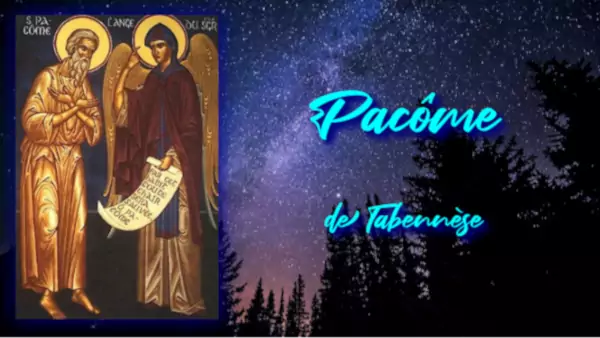- Presented by Ratovoarivelo Ndrasantsoa Marie Frédeline
- Category: Saint of the day
-
Also available:


09 May - Pacôme de Tabennèse or Pacôme le Grand, born in Thebaid around the year 292, and died around 9 May 348, is generally considered to be the founder of Christian cenobitism, that is, of religious life lived in common.
- Presented by Ratovoarivelo Ndrasantsoa Marie Frédeline
- Category: Saint of the day
-
Also available:


08 May - Désiré was born in March 512 in Sancy (Seine-et-Marne) into a family of the high aristocratic Frankish family. He is a high official of the kings Clotaire and Childebert, son of Clovis, with the title of chancellor or keeper of the royal seal.
- Presented by Randriamanisa Liva Niaina
- Category: Women empowerment
-
Also available:


Parents and older people have a responsibility to share their experiences and pass them on to their families. The value of the family is naturally evident when parents share. The family is a way of life for humanity, an element in the human life cycle that ensures the continuity of life. A person continues to be their own person even within a household, but they have and set common goals, which gives new life to the household... Programme ‘Promotion féminine’ broadcast on Radio Don Bosco.
- Presented by Ratovoarivelo Ndrasantsoa Marie Frédeline
- Category: Saint of the day
-
Also available:


07 May - Flavia Domitilla or Flavie Domitille, sometimes simply called Domitille, is a member of the Flavian Roman imperial family, who died after 95, and is mentioned by historians of the first three centuries. Daughter of Domitilla the Younger, and therefore granddaughter of the Roman Emperor Vespasian and niece of the emperors Titus and Domitian, she married the Roman consul Titus Flavius Clemens.
Subcategories
Message from the Bishops at the end of the Pilgrimage

Dear brothers and sisters in Christ, You who have come in such large numbers to take part in this national pilgrimage, as well as all of you who are following it from home through the media. We, the bishops of Madagascar, would like to express our deep gratitude to you for having responded to our invitation and for having brought this jubilee initiated by Pope Francis to life spiritually. With you, we take up Mary's song: ‘My soul exalts the Lord’ and we repeat with her: ‘What shall I repay the Lord for all the good he has done me?’....
Read more ...Love and Salvation

Christmas is a great joy, because it is the love of God that has come to us, proclaims Fr. Bizimana Innocent, Provincial Superior of the Salesians Don Bosco of Madagascar and Mauritius, presenting his Christmas greetings. Salvation is accomplished, so life is not in danger of disappearing. It is this love and this salvation that we wish to fill our life so that we have peace.
Read more ...Zatti, our brother

The short film "Zatti, our brother" (Argentina, 2020) focuses on one of the most difficult episodes of his life. We are in Viedma, in 1941: at the age of 60, Zatti is forced to leave the hospital he has attended for decades. His faith and strength are tested.
Read more ...© 2025 Radio Don Bosco






